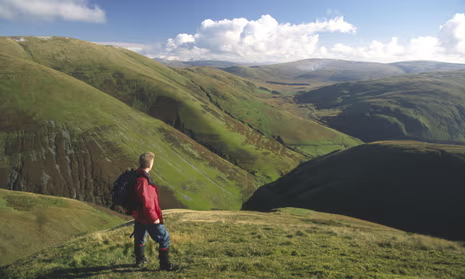ijen blue fire tour – Hiking a mountain requires additional planning since you will investigate the timberland conveying a weighty burden. However, aside from setting yourself up, you additionally must know about the wellbeing gambles with that might happen while on the mountain and ensure that you are constantly ready for anything exercises you do up there. There are so many risk that make you need to struggle to walk uphill.

Health Condition While Struggle to Walk Uphill
The following medical conditions that might emerge while getting over mountains that you ought to know about. Different wellbeing gambles from getting over mountains
1.Hypothermia
While struggle to walk uphill, you will keep on being presented to cold temperatures, weighty breezes and flighty precipitation. Essentially, consistent openness to cold temperatures from the external climate that are lower than internal heat level can cause hypothermia, in the event that your attire is improper or you have no control over your body condition.
Body shuddering might be the principal side effect of hypothermia that you feel when the temperature begins to drop since shuddering is your body’s programmed protection reaction to warm itself. From the outset, shuddering is normally trailed by weariness, slight disarray, absence of coordination, slurred discourse, quick breathing, and cold or fair skin.
- Vertigo
Dizziness is a sensation of shakiness or a turning sensation when the body isn’t moving or there is no development around, or unnatural body developments in light of different developments. For instance, being at a level, peering down from a high spot, or looking far away at a high point/item can cause the regular dizziness impression of the head shaking.
One issue lies in the internal ear. The internal ear controls body balance. At the point when this doesn’t function admirably, you might feel discombobulated or insecure. You may likewise encounter hearing issues or side effects of tipsiness that increment when your head is shifted in specific positions.
Other Articles : How Do I Get Better At Hiking Uphill?
- Ringing in the ears (Tinnitus)
Tinnitus is a relentless ringing in the ears. Likewise with dizziness, if you really think it wise to ascend a mountain when you have a migraine or have other ear issues, you could be in danger of encountering this.
At the point when you are at a height of thousands of kilometers, pneumatic stress from outside will crush the air in the ear waterway, creating an uproar of strain and torment in the head and ears. You should adjust the strain in this chamber utilizing different techniques, for example, squeezing your noses while delicately cleaning out your nose.
Assuming you do this accurately, you can endure the expanded strain with practically no issues. In any case, sinus blockage brought about by a cool, influenza, or sensitivities can slow down your capacity to level tension, bringing about harm to the eardrum.
- Mountain Affliction (AMS)
Mountain infection (AMS) happens when climbers are or go through the night at a specific height, particularly at an elevation somewhere in the range of 2400 and 3000 meters above ocean level (masl).
AMS can happen to anybody, paying little mind to mature. In any case, a few examinations express that AMS assaults ladies more frequently than men. AMS is brought about by diminishing oxygen levels and diminishing pneumatic force while moving to higher elevations. Side effects and indications of AMS as a rule show up inside a couple of hours.
There are so health risk that maybe happen during hike up hill. So you need to prepare properly and struggle to walk uphill.